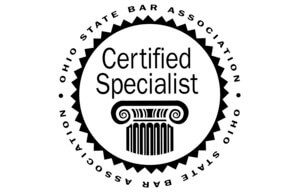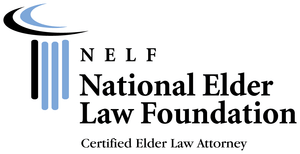Extra Income Allocation
/Robert and Kathleen had been married for 48 years, and have four children. Robert suffered a stroke and, following a stay in the hospital and some in-patient rehabilitation, was sent home. Kathleen cared for Robert for more than a year, even though her duties stressed her mental and physical health considerably. Robert had successive minor strokes and, eventually, Kathleen was unable to continue to take care of Robert, as she could not lift him on her own, her children all lived out of town, and Robert’s care needs made in home care prohibitive. Fortunately for Kathleen, she was able to admit Robert into a nursing home nearby, because Kathleen never learned to drive.
Knowing that Robert had been admitted to a nursing facility, a member of Robert and Kathleen’s church suggested she contact our Firm. It was determined upon review that Robert and Kathy had a home, a vehicle, and both had pre-paid funeral arrangements and cemetery deeds. The total remaining assets equaled $77,832. We informed Kathleen that Medicaid would permit her to keep only $38,916.00, and that the other $38,916.00 would normally have to be spent down to $1,500 in some permissible manner.
Exploring their options, it was discovered upon examination of the couple’s income and home expenses that, by special application with the Medicaid State Hearings unit, Kathleen could keep ALL of the assets and still be permitted to keep her own income, PLUS virtually all of Robert’s for her expenses. It was calculated using the applicable Medicaid formula that Kathleen’s minimum monthly maintenance needs allowance (MMMNA) was $2,100.00. Kathleen's monthly income totaled $461, and Robert received $890 monthly. Based on Kathleen’s age, it was determined that $77,832 would generate a monthly income of $767. Adding this amount to the couple’s fixed income yields $2,118, which exceeds the MMMNA of $2,100 by only $18. Therefore, this special application process permitted Kathleen to keep the full $77,832, collect her $461 and, of her husband’s $890, pay only $18 to the nursing home monthly and keep the $872 balance.
Kathleen engaged our services and we helped her assemble the necessary paperwork, then completed the application in the first month. Thereafter, Kathleen was not required to make any further payments for Robert’s nursing home or medical expenses because a Medicaid application was pending. We met with the County Caseworker who did her job correctly and determined that Kathleen was required to spend down $37,416 ($38,916 minus $1,500), and denied the application. (Kathleen was not required to attend the conference downtown). Unfortunately, even though the special application on appeal was made immediately, and the nursing home was informed of this, they issued a “30 day notice” to discharge Robert from the facility on the ground that Medicaid was no longer pending. We were forced to submit a challenge to the discharge to the State Department of Health. The challenge was upheld immediately at the hearing on the grounds that the denial for Medicaid benefits had been appealed. (Again, Kathleen was not required to attend this hearing or the hearing with the state hearings unit). The state hearing took place shortly thereafter and the hearing officer issued a decision in conformance with our previous indications to Kathleen. Kathleen made one payment of $54 to the nursing home ($18 for the current month plus $18 for each of the two preceding months since Robert entered the nursing home), and thereafter sent $18 each month to the facility. This payment was made easily from the interest off the $37,416 she saved.





